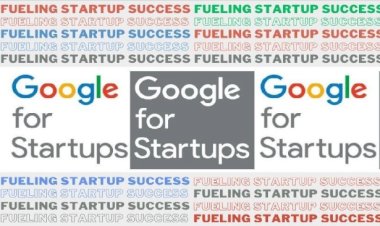Startup valuation is a critical aspect of the entrepreneurial journey
Entrepreneurs and investors alike seek to determine the worth of a startup, which often involves estimating future potential and risk.

Entrepreneurs and investors alike seek to determine the worth of a startup, which often involves estimating future potential and risk. In this blog, we will explore three commonly used methods for valuing startups: ARR Multiple (Annual Recurring Revenue Multiple), DCF Method (Discounted Cash Flow), and VC Method (Venture Capital Method).
ARR Multiple (Annual Recurring Revenue Multiple)
The ARR Multiple method is particularly popular for valuing Software as a Service (SaaS) startups and other subscription-based businesses. It focuses on the annual recurring revenue generated by the startup and involves the following steps:
a. Calculate ARR: To begin, calculate the Annual Recurring Revenue, which includes all subscription-based revenues, excluding one-time payments.
b. Determine Comparable Multiples: Research the ARR multiples of similar companies in the industry. These multiples are typically based on recent acquisitions or funding rounds.
c. Apply the Multiple: Multiply the startup's ARR by the average multiple observed in the industry to estimate its valuation.
Pros:
Simplicity: This method is relatively straightforward and easy to understand.
Industry Relevance: It is particularly relevant for subscription-based businesses.
Cons:
Limited Applicability: It may not be suitable for startups with complex revenue models or those outside the subscription-based sector.
Ignores Profitability: ARR Multiple does not account for profitability or cash flow, which can be important factors in startup valuation.
DCF Method (Discounted Cash Flow)
The Discounted Cash Flow (DCF) method is a fundamental approach used to value startups and established businesses alike. It estimates the present value of a startup's future cash flows, accounting for the time value of money. Here's how it works:
a. Estimate Cash Flows: Forecast the startup's future cash flows, which typically involve revenue projections, operating costs, and capital expenditures.
b. Determine Discount Rate: Select an appropriate discount rate that reflects the startup's risk. This rate is often based on the startup's cost of capital.
c. Calculate Present Value: Discount the projected cash flows back to their present value using the chosen discount rate. The sum of these present values represents the startup's valuation.
Pros:
Comprehensive: DCF takes into account future cash flows, providing a holistic view of the startup's potential.
Customizable: It can be adapted to various types of startups and industries.
Cons:
Subjective: The accuracy of DCF heavily depends on the accuracy of revenue and cost projections.
Complexity: Calculating DCF can be complex and requires financial expertise.
VC Method (Venture Capital Method)
The VC Method is a preferred approach for venture capitalists and angel investors when valuing early-stage startups. It seeks to estimate the startup's post-money valuation after a future funding round. Here's how it works:
a. Estimate Terminal Value: Predict the startup's expected exit valuation (e.g., acquisition or IPO) at a future date.
b. Determine Expected Return: Calculate the expected return rate for investors based on their required rate of return and the expected holding period.
c. Back-Calculate Pre-Money Valuation: Using the terminal value and expected return rate, back-calculate the pre-money valuation, which is the startup's value before the next funding round.
Pros:
Investor-Centric: VC Method aligns with the expectations of venture capitalists and angel investors.
Forward-Looking: It focuses on the startup's future potential, which is especially relevant for early-stage companies.
Cons:
Speculative: Predicting the startup's exit valuation can be speculative and uncertain.
Limited Applicability: VC Method may not be suitable for startups seeking non-traditional exit strategies or those in industries with extended growth timelines.
Startup valuation is a complex but essential process that requires careful consideration of various factors. While these three methods—ARR Multiple, DCF Method, and VC Method—offer different perspectives, it's important to remember that no single method is foolproof. Valuation often involves a combination of methods and expert judgment to arrive at a fair and realistic valuation for a startup. Entrepreneurs and investors should engage in thorough due diligence and seek professional guidance when determining a startup's worth, as it can significantly impact investment decisions and the future growth of the business.
























